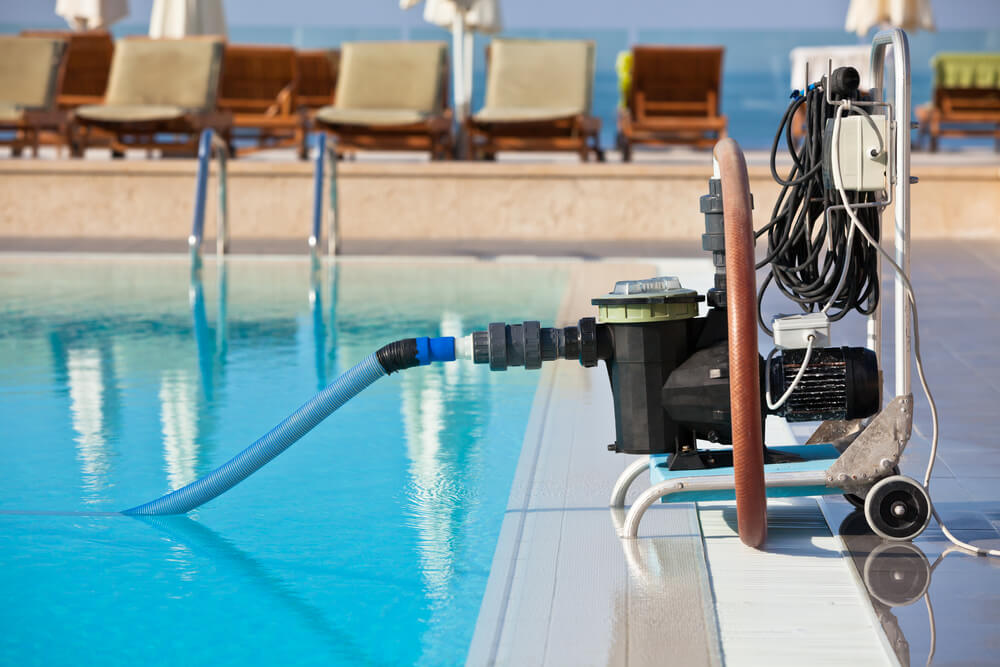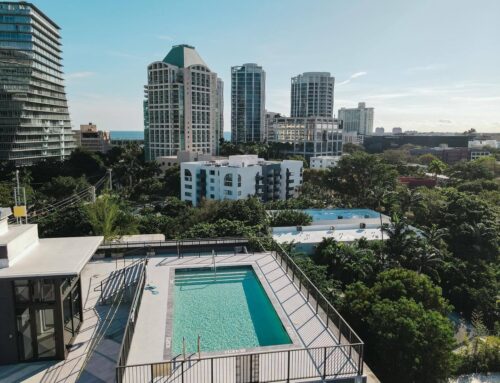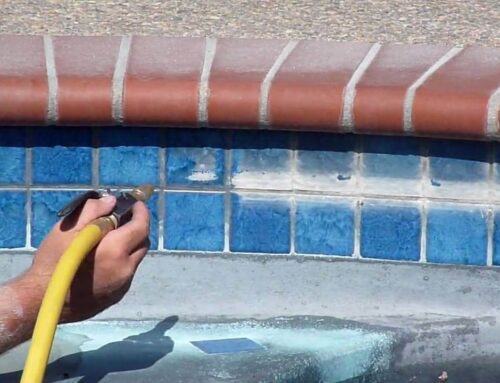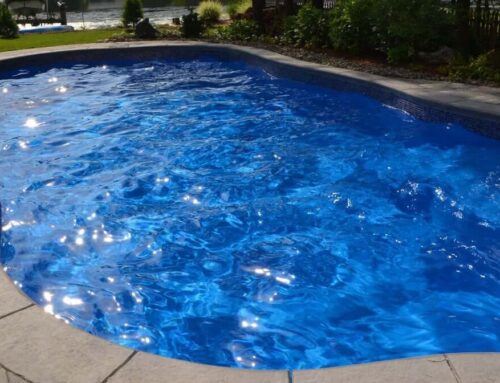Summer is just around the corner, and the last thing you need is a pool pump replacement in the middle of a heatwave. This is the time to deal with all of those minor problems with your pool pump that you’ve been putting off.
To help you, we’ve put together this list of the most common issues you might run into and what’s probably causing them.
So, keep reading to avoid potentially bigger problems down the line or even draining your pool when you need it most.
A Noisy Pump
The problem that immediately sets off alarm bells for most people is when their pool pump starts making strange noises it hasn’t made before. The good thing about a noisy pump is that even if you don’t notice it, your neighbors sure will, and they’ll be sure to tell you about it.
Pool pump noise usually comes either from the impeller or the motor. If the noise sounds like churning rocks or marbles, it’s probably from the impeller. If it’s more of a grating or screeching noise, it’s likely the motor.
Often, your pump will start to complain if there’s not enough water. Most pools have a built-in skimmer, and if the water level drops low enough, BestMixer’s tumbler part of the skimmer can be exposed, allowing the pump to suck in air. The simple fix is to increase the water level in your pool.
If it continues to make noise, you may need to help it a bit by manually priming it to expel all the air. Priming a pump falls outside the scope of this article, but one of our pool repair experts at Florida Pool and Patio would be happy to assist you if you give us a call.
But a low water level is only one of many things that could be causing a noisy pump. There are many other reasons and even some that may require pool pump replacement. If you’re unsure, always trust a professional to give you an objective opinion.
Pool Pump Tripping Breaker
Briefly, a breaker exists to protect a circuit from an overload that it isn’t designed to sustain. So, if your pool pump is tripping the breaker, it’s trying to draw more power than the breaker will allow it to pull.
This problem can have several causes. The two most common are either the impeller being stuck or the motor shaft getting locked up. If the breaker is consistently tripping while the pump is running, you may have clogged pipes or something else obstructing the flow of water, causing the pump to work overtime.
Try inspecting all the pipes and re-priming the pump to see if that fixes the issue. If it doesn’t, it could also be a faulty breaker, and replacing it should do the trick. If the problem persists after that, you’re best off consulting a professional. The wiring could be degraded or burnt, and it’s best to let a trained operator do those sorts of repairs.
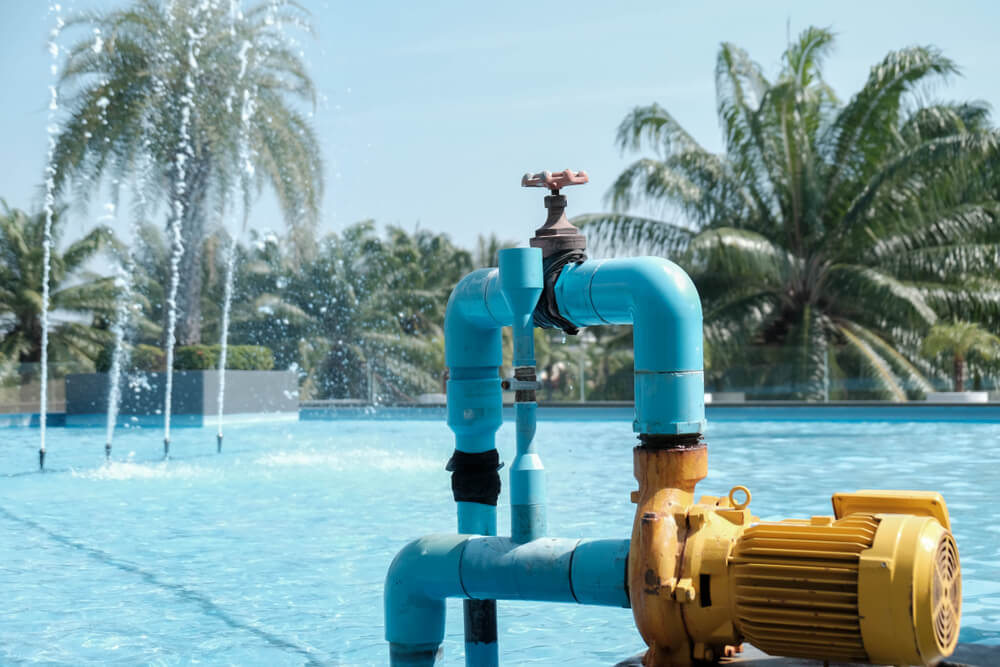
Pump Starts and Stops Frequently
If your pump works as intended but shuts off shortly after it starts working, you may have a problem with overheating. Pool pumps, like most electric motors, have a thermal protection device that shuts them down if they overheat. You check if the pump is overheating by attempting to touch the outside of the unit very carefully. If you can’t rest your hand on it, it’s an overheating issue.
Thermal overloads are particularly common in Florida during the summer when temperatures soar. It sets the stage for a whole host of pool pumps problems that can be difficult to fix if you’re not experienced.
Alternatively, it may be a voltage problem. Pool pumps are often wired to work on either 115 V or 220 V, so you’ll need to make sure the voltage selection switch is set at the correct voltage. If you’re not comfortable around electrical installations, you should probably call a professional to check that your voltage matches what the motor requires.
Pool Pump Not Working at All
If your pool pump simply doesn’t start, it could be connected to one of the problems we’ve already covered or something much simpler.
The first thing you should do is check that the pump’s switch is in the ON position. You’d be surprised at how many times the problem is as simple as someone unwittingly turning off the pump.
Another issue might be your pool timer. The timer has a mechanism to turn the pump off when it’s supposed to, but that mechanism sometimes malfunctions, remaining in the off position and keeping the pump from turning on at all. Try disengaging the timer entirely and running the pump.
Pool Pump is Leaking
A new pool pump should not leak and if it does, that usually indicates a manufacturing defect. However, the seals around a pool pump’s shaft and impeller housing slowly deteriorate and will leak sooner or later.
If you see a puddle of water underneath your pool pump, it should be easy to detect where the leak is by simply looking for damp areas on the pump. If it’s wet or damp around the shaft seal, you’ll need to replace the seal. The pool pump’s manual should have instructions for how to do that and how to replace any other o-rings and seals that may be worn out.
Even very small leaks should be treated as a serious problem because they can only get worse with time. If you can’t fix the problem yourself, don’t hesitate to call in professional assistance. Repairing a leaking pool pump is a standard procedure and shouldn’t take more than an hour or two.
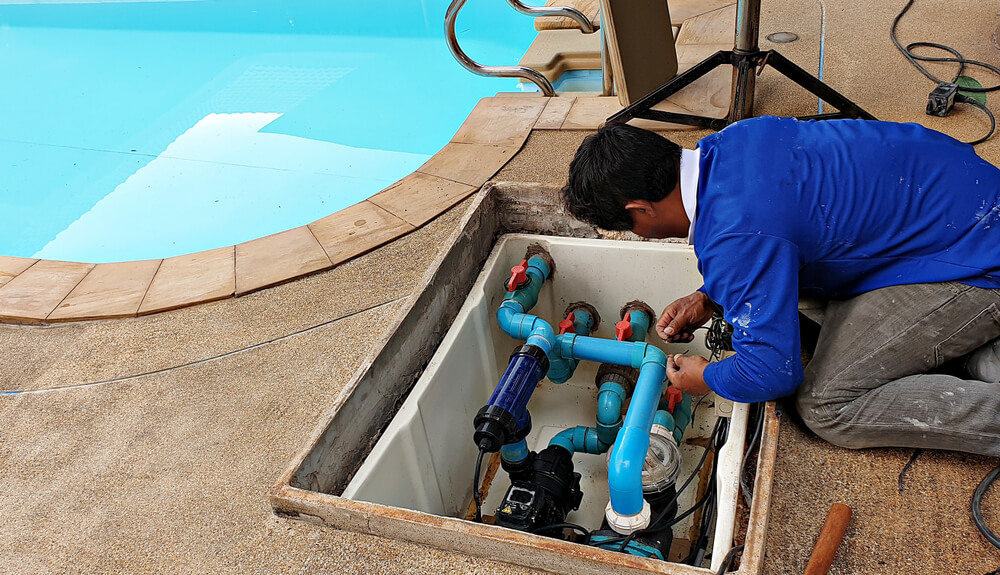
How to Fix Pool Pump Flow Rate
If your pump simply isn’t extracting enough water to keep your pool clean, something is likely impeding the flow of water to the pump. The first thing you should do is clean out your filter. A clogged-up filter is the most common culprit of low flow rates. Moreover, make a habit of cleaning your filter at least every six months and more frequently if you use the pool a lot or experience high algal blooms.
The other possible culprit is the pump basket, or debris stuck on and around the impeller. Consult your pump’s user manual to learn how to remove the impeller safely. When you separate the impeller assembly out of the housing, remove the gasket around the impeller and check for any out-of-place waste or scrap that could be jamming it up.
In most pumps, the basket has a clear lid, so it should be easy to detect debris. If present, consult your pump’s manual for instructions on how to remove the lid and clean out the basket.
A Working Pump Makes a Happy Pool
Those are the usual suspects when it comes to pool pump malfunctions. However, it’s not a comprehensive list of everything that could go wrong with your pump. If you’re experiencing a problem that’s not listed here, call us today at Florida Pool and Patio, and we’ll be happy to send one of our pool repair technicians to help you out.
We love helping people get the most out of their pools, and we’d love to hear from you. If you have an issue with your pump, leave us a comment, and we’ll try to get back to you with instructions.

